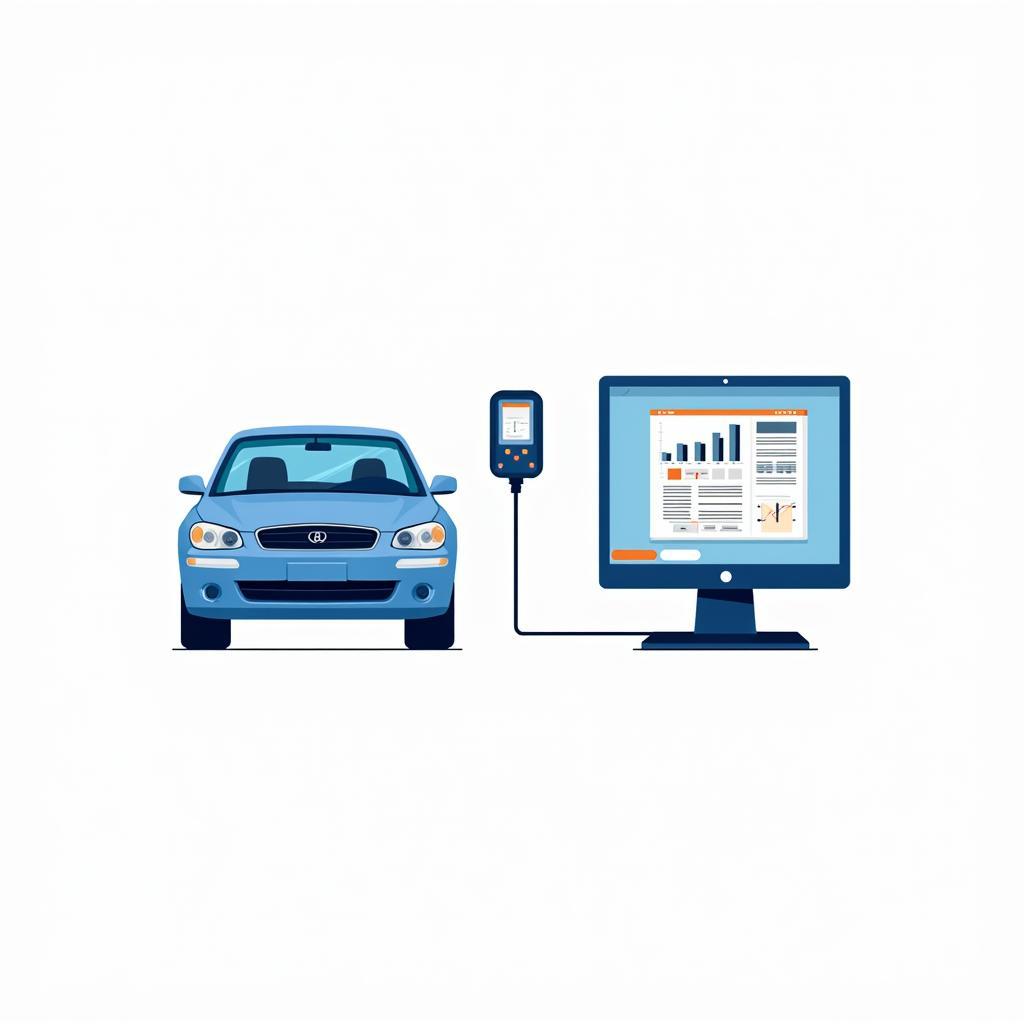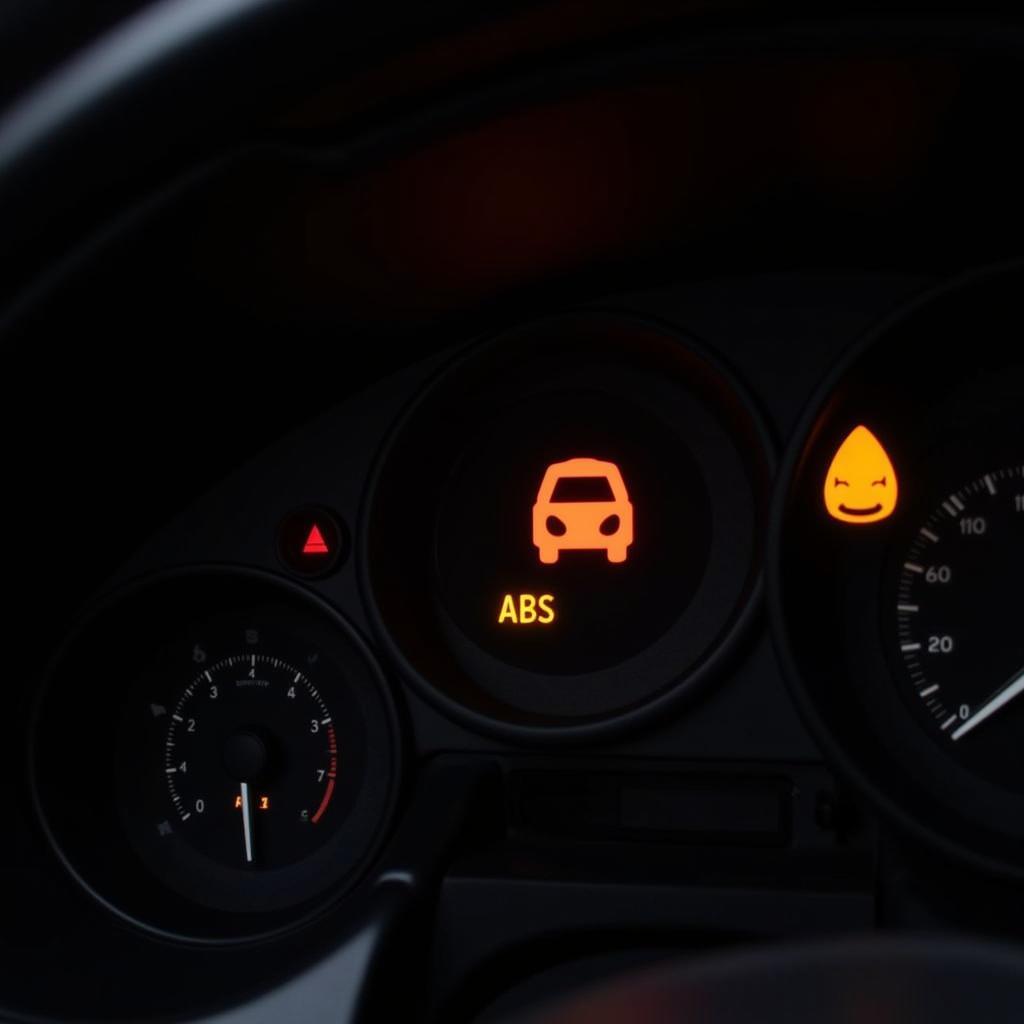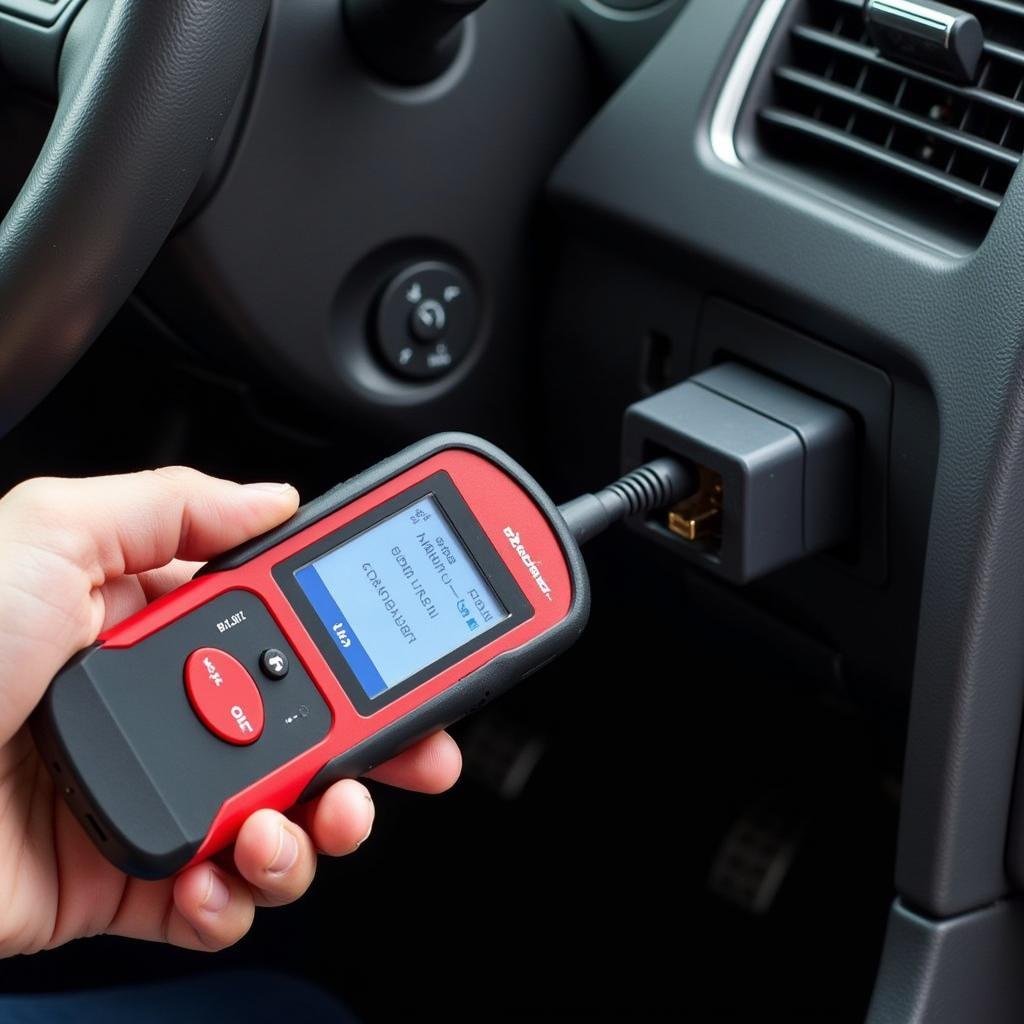A Diagnostic Car Test is an essential part of modern vehicle maintenance. It helps mechanics pinpoint issues within your car’s systems, saving you time and money on unnecessary repairs. This comprehensive guide explores everything you need to know about diagnostic car tests, from their components and benefits to their costs and common questions.
Understanding Diagnostic Car Tests
 Diagnostic Car Test Process
Diagnostic Car Test Process
A diagnostic car test, also known as a car computer scan, utilizes a specialized tool to communicate with your vehicle’s onboard computer system. This system, often referred to as the Engine Control Unit (ECU), continuously monitors various sensors and components throughout your car.
The diagnostic test retrieves data from the ECU, presenting it in an understandable format for mechanics. This data includes:
- Stored Diagnostic Trouble Codes (DTCs): These codes pinpoint specific areas where the ECU has detected malfunctions.
- Freeze Frame Data: This snapshot of the vehicle’s performance at the time a fault code was stored, including speed, engine RPM, and temperature.
- Live Data Stream: This real-time information from various sensors allows mechanics to observe the car’s performance while it’s running.
By analyzing this information, mechanics can accurately diagnose issues and recommend the appropriate course of action.
Why Are Diagnostic Car Tests Important?
 Car Dashboard Warning Lights
Car Dashboard Warning Lights
Modern vehicles are increasingly complex, making it difficult to diagnose issues through visual inspection alone. Diagnostic car tests offer numerous benefits, including:
- Accurate Diagnosis: Pinpoint the root cause of a problem, eliminating guesswork and unnecessary repairs.
- Early Detection: Identify potential issues before they escalate into major and costly problems.
- Improved Safety: Ensure all safety-critical systems, such as airbags and brakes, are functioning correctly.
- Increased Resale Value: A clean diagnostic report can assure potential buyers of a vehicle’s good condition.
While the check engine light is a common trigger for a diagnostic test, it’s not the only reason to get one. Consider getting a diagnostic car test if you experience any unusual symptoms like:
- Reduced fuel efficiency
- Engine misfires or stalling
- Rough idling
- Strange noises
- Warning lights on the dashboard
- Transmission problems
What Does a Diagnostic Car Test Cost?
The diagnostic car test cost can vary depending on several factors, including:
- Location: Labor rates and shop overhead differ between geographic areas.
- Vehicle Make and Model: Some vehicles require specialized diagnostic equipment or software.
- Complexity of the Issue: Diagnosing complex problems may involve more extensive testing.
While some mechanics offer free diagnostic car tests, it’s crucial to inquire about their thoroughness. A comprehensive test might be worth the cost to ensure accurate diagnosis and avoid future issues.
“A proper diagnostic test is an investment in your vehicle’s longevity,” says John Smith, Senior Automotive Technician at XYZ Auto Repair. “It’s always better to identify and address potential problems early on to avoid costly repairs down the road.”
What Happens If Components Don’t Pass the Diagnostic Car Test?
If the diagnostic car test identifies failing components, the next step involves:
- Further Inspection: Mechanics may need to conduct additional tests to confirm the diagnosis and assess the severity of the issue.
- Repair or Replacement: Depending on the component and the extent of the damage, repair or replacement might be necessary.
- Code Clearing: After addressing the problem, the mechanic will clear the fault codes from the ECU.
Don’t panic if your car doesn’t pass all aspects of the diagnostic car test.
For a detailed guide on what to do when components fail a diagnostic car test, read our article: Diagnostic Car Test Components Not Passed.
Finding a Reliable Mechanic for Diagnostic Car Tests
Choosing the right mechanic is crucial for accurate diagnosis and effective repairs. Consider these factors when selecting a mechanic for your diagnostic car test:
- Reputation: Look for reputable mechanics with positive customer reviews and a proven track record.
- Experience: Mechanics specializing in your vehicle’s make and model will be familiar with its common issues.
- Equipment: Ensure the mechanic has access to the latest diagnostic equipment and software for your vehicle.
- Transparency: Choose a mechanic who clearly explains the test results and repair options.
For residents of Swaffham and surrounding areas, consider visiting DiagFixPro. We provide comprehensive and reliable diagnostic car tests at competitive prices.
Schedule your diagnostic car test today: Car Diagnostic Test near Swaffham.
DIY Diagnostic Car Tests: Are They Worth It?
 DIY Car Diagnostic Tester
DIY Car Diagnostic Tester
While affordable diagnostic tester for car options are available, they might not offer the same depth of information as professional-grade equipment.
These DIY tools can be helpful for:
- Reading and Clearing Basic Codes: Identify and clear simple fault codes.
- Monitoring Basic Parameters: Display basic engine data like RPM and coolant temperature.
However, keep in mind:
- Limited Functionality: They might not access all the data available to professional scanners.
- Code Interpretation: Understanding and interpreting the meaning of fault codes can be challenging.
For accurate diagnosis and effective repairs, seeking professional help is recommended.
Full Diagnostic Test on Car: When Do You Need It?
A full diagnostic test on car cost provides a comprehensive evaluation of your vehicle’s systems, going beyond just reading fault codes. It’s particularly useful when:
- Buying a Used Car: Ensure the vehicle is in good working order and doesn’t have hidden issues.
- Experiencing Intermittent Problems: Identify the cause of problems that occur sporadically.
- Performing Preventative Maintenance: Gain a thorough understanding of your vehicle’s health.
While a full diagnostic test might be more expensive, it offers valuable insights and peace of mind.
Conclusion
A diagnostic car test is an indispensable tool for modern car owners. It empowers mechanics with the information needed to diagnose and resolve issues accurately and efficiently, saving you time and money on unnecessary repairs.
By understanding the importance of diagnostic car tests and choosing a reliable mechanic, you can ensure your vehicle remains in optimal condition for years to come.
FAQs
1. How often should I get a diagnostic car test?
It’s recommended to get a diagnostic car test annually or whenever you experience unusual symptoms with your vehicle.
2. Can a diagnostic car test detect all car problems?
While comprehensive, a diagnostic car test might not detect every issue. Some problems, like mechanical wear and tear, might require visual inspection or further testing.
3. Will clearing the codes fix the problem?
Clearing the codes only erases the fault codes from the ECU’s memory. It doesn’t address the underlying issue causing the problem.
4. Can I drive my car with the check engine light on?
While you might be able to drive for a short distance, it’s crucial to get your car inspected as soon as possible to prevent further damage and ensure your safety.
5. Are there any disadvantages to getting a diagnostic car test?
The only potential disadvantage is the cost if you opt for a professional test. However, the benefits of accurate diagnosis and early problem detection outweigh this cost.
Need assistance with a car diagnostic test? Contact us via WhatsApp: +1(641)206-8880 or Email: [email protected]. Our dedicated customer support team is available 24/7 to assist you.

Leave a Reply